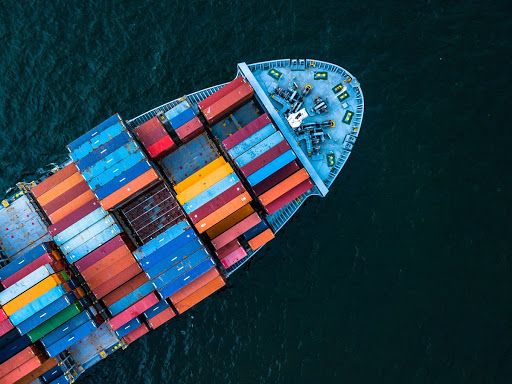
EuroCham: EVFTA is a strong link between Vietnam and Europe
Latest
August 1st, 2023 marks the 3rd anniversary of the implementation of the "historic agreement" EVFTA. How do you evaluate it after 3 years of EVFTA coming into effect?
 |
| Chairman of the European Chamber of Commerce in Viet Nam (EuroCham) Gabor Fluit. |
August 1, 2023, marked an important milestone - three years since the EU-Vietnam Free Trade Agreement (EVFTA) entered into force. This agreement has been a robust link connecting Vietnam and Team Europe, yielding numerous positive outcomes for both sides.
Since August 2020, the EVFTA has facilitated trade growth between Vietnam and the EU, despite a minor setback in 2020 due to the pandemic. Over the past three years, bilateral trade has steadily expanded, resulting in substantial economic gains. The total trade value under the EVFTA has nearly reached $130 billion from August 2020 through June 2023, with a trade volume of $66.8 billion in 2022.
The European Union has seen an increase in exports to Vietnam, covering various sectors like machinery, automobiles, pharmaceuticals, chemicals, and consumer goods. Simultaneously, Vietnamese exports including electronics, textiles, footwear, agriculture, and seafood have displayed impressive growth. Impressively, Vietnamese goods now constitute 1.8% of the EU's total imports, surpassing neighboring countries like Malaysia (1.2%), Thailand (0.9%), Indonesia (0.7%), and Singapore (0.7%), according to Eurostat.
As we celebrate these achievements, we recognize the untapped potential of the EVFTA, even with the EU as Vietnam's second-largest export market. While ongoing EVFTA tariff reductions continue to boost trade and investment between Vietnam and the EU, we must address specific roadblocks to fully embrace the EVFTA’s spirit, including technical trade barriers and the special consumption tax. Our commitment to realizing the agreement's full potential requires collaborative efforts to resolve these issues, fostering an environment where the partnership between Vietnam and Team Europe can continue to evolve.
According to the EuroCham Business Confidence Index (BCI) in the second quarter of 2023, half of surveyed enterprises said that they are benefiting from the EVFTA. In which, 35% of business leaders said that they benefited from tariff reductions. In your opinion, what do European businesses take advantage of when doing business in the Vietnamese market?
The EVFTA has been a driving force behind the rapid economic growth between Vietnam and the EU. Thanks to this agreement, businesses on both sides have gained significant advantages. The most notable benefit is the reduction in tariffs. Through a gradual elimination of tariffs over ten years starting in 2020, the EVFTA has opened up tremendous opportunities for Vietnamese businesses to access the EU market and for European firms to export to Vietnam. According to the EuroCham BCI, this is the most tangible way the EVFTA is benefiting our members.
The BCI also tells us that the second and third most important benefits of the EVFTA have been better access to the Vietnamese market and increased competitiveness in Vietnam. European enterprises have seized the opportunity to diversify their offerings to Vietnam. As tariffs continue to fall over the next seven years, European companies are in a position to gain substantial benefits, particularly in sectors like electrical equipment, precision tools, vehicles, and medicines.
Beyond the EVFTA, Vietnam itself offers a compelling investment landscape. The country has experienced rapid economic growth and possesses a young, skilled workforce ready to support a growing economy. With its strategic geographic location and extensive trade agreements with much of the world, Vietnam is ideally positioned as a hub for export-oriented manufacturing. The country also boasts abundant natural resources and agricultural potential that lay the groundwork for robust export prospects across sectors.
What are the challenges of European enterprises when doing business in the Vietnam market? Have European businesses made full use of the EVFTA?
Though the EVFTA has created promising prospects for collaboration since taking effect in August 2020, European companies still face hurdles that impede fully harnessing its potential. EuroCham’s BCI highlights some key obstacles.
One key hurdle involves navigating complex administrative protocols and licensing procedures that cause delays, despite Vietnam's efforts to streamline regulations. Further enhancing transparency and efficiency in these processes is critical to expedite trade facilitation.
Additionally, some European companies face difficulties in fully comprehending the agreement's nuanced technicalities. This knowledge gap causes enterprises to miss out on valuable prospects. Deepening comprehension will allow European investors to optimally harness the agreement’s immense potential.
Inadequate infrastructure poses another barrier, as evidenced by the recent power shortages in June 2023. Expanding capacity, especially in renewable energy, is critical to prevent deficits from slowing economic growth. Upgrading roads, rail, ports and airports is also key for smooth business and trade flows. Though 2023 has seen some progress on highways, addressing infrastructure gaps will ensure a sustainable, resilient environment.
Despite these challenges, European enterprises remain optimistic about the EVFTA’s promise.
To fully make use of the benefits that EVFTA brings, what do you think businesses of both sides (Vietnam and Europe) need to do?
For Vietnam, a top priority should be further developing expertise on the agreement's provisions and export protocols through government and industry guidance. Enhancing understanding of the EVFTA's commitments is key for local businesses to capitalize on its benefits.
Upgrading production and service standards is also essential for Vietnamese enterprises to meet the high demands of the EU market for quality, safety, and sustainability. To stay competitive, local companies must keep pace with evolving European consumer preferences and priorities. This involves investments to achieve certifications and compliance with EU product regulations, as well as adopting international best practices for quality control and supply chain transparency.
Moreover, partnerships with European companies can provide invaluable knowledge transfer and supply chain integration opportunities. The EuroCham Green Economy Forum on November 2, 2023 presents a prime networking platform to share green best practices - boosting export appeal to eco-conscious EU consumers. Embracing these collaborative forums will empower Vietnamese enterprises to position themselves as forward-thinking, environmentally-conscious trading partners.
For European companies, close teamwork with Vietnamese government agencies and industry partners is also critical. Giving feedback on implementation issues and working together on solutions will nurture a more favorable, efficient and transparent trading environment. European investors should also make partnerships, joint ventures and relationships with Vietnamese companies a priority. This will help integrate local knowledge. Building mutual understanding and trust between EU investors and Vietnamese enterprises will enable successful long-term collaborations.
 |
| The EVFTA has been a driving force behind the rapid economic growth between Vietnam and the EU. (Source: Vlr.vn) |
According to the report of the WTO Center (Vietnam Chamber of Commerce and Industry - VCCI), EU FDI into Vietnam is quite modest. EVFTA is expected as a highlight to attract investment from Europe to Vietnam. How do you assess the situation of attracting FDI into Vietnam after 3 years of implementing the EVFTA? What does Vietnam need to improve to have more European investors?
The delayed ratification of the EVIPA by all EU member states has adversely affected investment flows. The EVIPA is designed to complement the EVFTA by providing investment protection between Vietnam and the EU. It functions as a safeguard for investments by ensuring equitable treatment and protection from bias for European investors in Vietnam, creating a level playing field. However, the EVIPA requires double ratification - from both the EU Parliament and each of the EU’s 27 individual member states. This process has slowed full ratification, with only about half of EU states having ratified it.
Securing visas and work permits for foreign workers continues to pose persistent challenges, with over 80% of surveyed businesses encountering various difficulties, according to EuroCham’s most recent BCI. Work permit and visa restrictions under Decree 152 constrain skilled worker transfers and top talent recruitment, limiting the skill development crucial for FDI and workforce competitiveness. Addressing these labor mobility constraints is vital to fully utilize the EVFTA for attracting European investment and associated knowledge transfers.
Administrative hurdles like difficulties in acquiring necessary permits and approvals for investment projects have also discouraged investors and caused delays, according to the BCI. Complicated procedures and inconsistent requirements make it challenging for investors to get timely approvals to move forward with planned projects and investments. Streamlining bureaucracy and regulations will create a more welcoming environment for European capital.
Developing Vietnam's human capital through education, vocational training, and workforce skills development also represents a major opportunity. Enhancing the nation's talent pool will allow Vietnam to effectively implement and absorb more European FDI, driving sustainable growth. Investing substantially in human resource development will make Vietnam far more attractive for European investors looking for capable talent and long-term partnerships.
Vietnam's economy is mainly based on manufacturing and exports. However, we are being greatly impacted by the difficult global situation. How should Vietnam take advantage of the EVFTA to improve its export situation?
First, raising awareness about the agreement's lower tariffs and origin rules will help exporters export more to the EU. The Government can offer training and support, especially to key exporting industries like textiles, electronics and farming. This will help these sectors meet EU standards and quickly boost competitiveness.
Also, promoting more value-added production and exporting higher-quality branded goods and services to the EU will make Vietnamese exports stand out. Differentiating through innovation, unique branding and better quality will appeal to European consumers. This will also allow Vietnam to move beyond just competing on price.
In addition, facilitating partnerships between Vietnamese enterprises and EU companies is pivotal for integrating into European supply chains and distribution networks. Tapping into these existing corporate networks will provide Vietnamese exporters the opportunities to dramatically expand market access and visibility in the EU. The EVFTA provides the ideal framework to nurture these critical business relationships between Vietnamese and European firms.
Furthermore, actively addressing European legal concerns, improving transparency, and simplifying complex trading procedures will make Vietnam far more attractive for EU manufacturing investment focused on exports. Having a smooth, efficient, welcoming business environment will bring in significant European money and skills into Vietnam's exporting industries.
On top of this, Vietnam should fully use EU technical help and funding to modernize customs and improve supply chain connections. Using this support will increase Vietnam's capabilities and global exporting competitiveness.
Finally, demonstrating Vietnam's commitment to sustainable trade practices, labor rights, and environmental protection will highlight its responsible business conduct to the EU. This will encourage long-term export growth in the European market.
Thank you so much!













